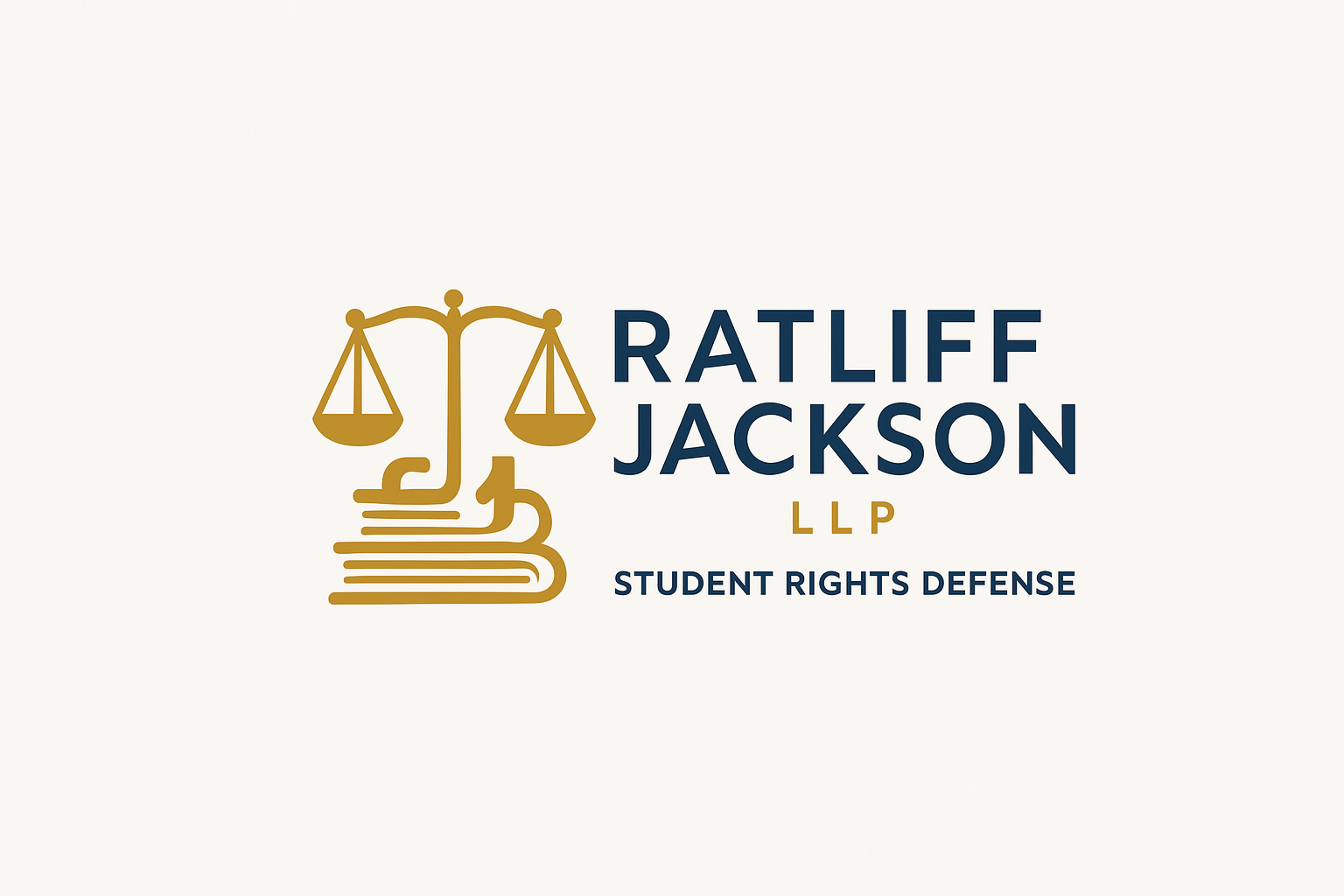Graduating students often face immense pressure as they transition to professional or graduate studies. A sudden Title IX complaint can derail years of academic effort and jeopardize future opportunities. The timing alone can compound an already stressful process, especially when universities delay degree conferral or disclose disciplinary matters to graduate programs. Meanwhile, the rights of those accused under other disciplinary codes—those not governed by Title IX—often receive less procedural protection, despite potentially identical consequences. This blog explores the legal, academic, and policy implications of late-stage Title IX complaints and argues for the extension of Title IX procedural protections to all serious campus disciplinary matters.
I. The Legal Backbone: Title IX, Due Process, and Goss v. Lopez
Title IX of the Education Amendments of 1972 prohibits sex-based discrimination in federally funded educational programs. While originally associated with gender equity in athletics, the law has evolved to include protections against sexual harassment and assault. Importantly, it now mandates procedural safeguards for the accused under federal regulations revised in 2020.
The relevance of Goss v. Lopez, 419 U.S. 565 (1975) endures. There, the Supreme Court established that students facing significant disciplinary action—such as suspension—are entitled to notice and an opportunity to be heard. As the Foundation for Individual Rights and Expression (FIRE) underscores, this principle should not be limited to Title IX cases alone. Schools must recognize that a long-term suspension or expulsion can equally jeopardize a student’s future, whether the underlying conduct is sexual or non-sexual in nature.
II. Procedural Gaps in Campus Justice
FIRE’s article, “Students accused of non-Title IX misconduct should get fair hearings too,” powerfully highlights a double standard: while Title IX respondents are now entitled to robust protections—including the right to cross-examine, access to evidence, and a presumption of innocence—students facing parallel outcomes for other types of misconduct (e.g., racial harassment, physical assault) often are not.
“Our goal is to ensure that all students facing serious punishment like long-term suspension or expulsion receive a meaningful opportunity to defend themselves,” FIRE writes.
Indeed, many universities fail to extend due process rights unless compelled by federal mandates. This policy vacuum creates legal inconsistency and institutional arbitrariness, often leaving accused students in non-Title IX cases more vulnerable to biased adjudications.
III. Title IX Complaints Near Graduation: Strategic or Circumstantial?
Students may file Title IX complaints shortly before graduation for legitimate reasons, such as delayed processing of trauma, administrative confusion, or new awareness of institutional reporting mechanisms. However, such timing can inadvertently—or strategically—amplify the punitive impact:
- Degree Withholding: Institutions may place administrative holds, delaying conferral.
- Transcript Notations: Pending investigations may appear in academic records.
- Graduate School Impact: Applications in review may be flagged for integrity concerns.
- Job Market Consequences: Employers conducting background checks may withdraw offers.
These sanctions take effect even before a finding of responsibility, underscoring why the presumption of innocence and access to fair process are so vital.
IV. Legal Precedent and Circuit Splits
Recent case law reflects growing judicial concern over unfair procedures:
- Doe v. Purdue University, 928 F.3d 652 (7th Cir. 2019), found that a male student plausibly alleged due process violations and gender bias in a Title IX proceeding that cost him a Navy ROTC scholarship and a spot at a prestigious grad school. Read the case
- Haidak v. University of Massachusetts-Amherst, 933 F.3d 56 (1st Cir. 2019), rejected the need for cross-examination in some contexts, creating tension with rulings like Purdue. Read the case
- Doe v. University of Southern California, 29 Cal. App. 5th 1212 (2018), emphasized that fairness requires both notice and an opportunity to respond in meaningful ways. Read the case
There is no consensus yet across jurisdictions on the minimum process required for non-Title IX cases, leaving a patchwork that can disproportionately harm students based on geography or university policy.
V. Policy Recommendations: A Unified Standard of Fairness
It is untenable for universities to maintain dual justice systems. FIRE’s solution is pragmatic and equitable: institutions should adopt a unified code of student conduct that ensures consistent procedural rights across all serious disciplinary matters.
These should include the presumption of innocence, timely and specific notice, access to all evidence, a live hearing with cross-examination, impartial adjudicators, written reasoning, and the right to appeal.
VI. Strategic Advice for Students Facing Late-Stage Title IX Complaints
If you are accused of a Title IX violation near graduation and are awaiting graduate school admission:
- Consult Legal Counsel Immediately: Seek an attorney experienced in campus disciplinary matters.
- Review Institutional Policy: Understand timelines, rights, and potential outcomes.
- Preserve Communications: Save all emails and messages related to the incident and investigation.
- Engage with Graduate Schools Transparently (If Appropriate): Some candidates proactively notify schools about ongoing proceedings, stressing due process and the absence of findings.
VII. Calls to Action
- For Students: FIRE has drafted template letters to request fair hearings in non-Title IX cases. Use them.
- For Universities: Align non-Title IX disciplinary processes with Title IX standards to avoid claims of arbitrary and capricious treatment.
- For Graduate Programs: Refrain from prejudging applicants with unresolved investigations and evaluate candidates holistically.
Conclusion
Late-stage Title IX complaints pose significant risks to students on the cusp of major life transitions. But as FIRE rightly emphasizes, the issue is bigger than Title IX alone. It’s about fairness, consistency, and the integrity of higher education. If the conduct alleged is serious enough to warrant suspension or expulsion, then the hearing must be serious enough to protect the rights of the accused—regardless of the statute under which they are charged.
Institutions must recognize that due process is not optional—it’s a constitutional imperative. Only by extending Title IX-level protections across the disciplinary spectrum can universities truly commit to both justice and equity.
Interested in pursuing this issue? Contact our firm to review your institution’s policies, request an internal review, or represent you in campus proceedings.
